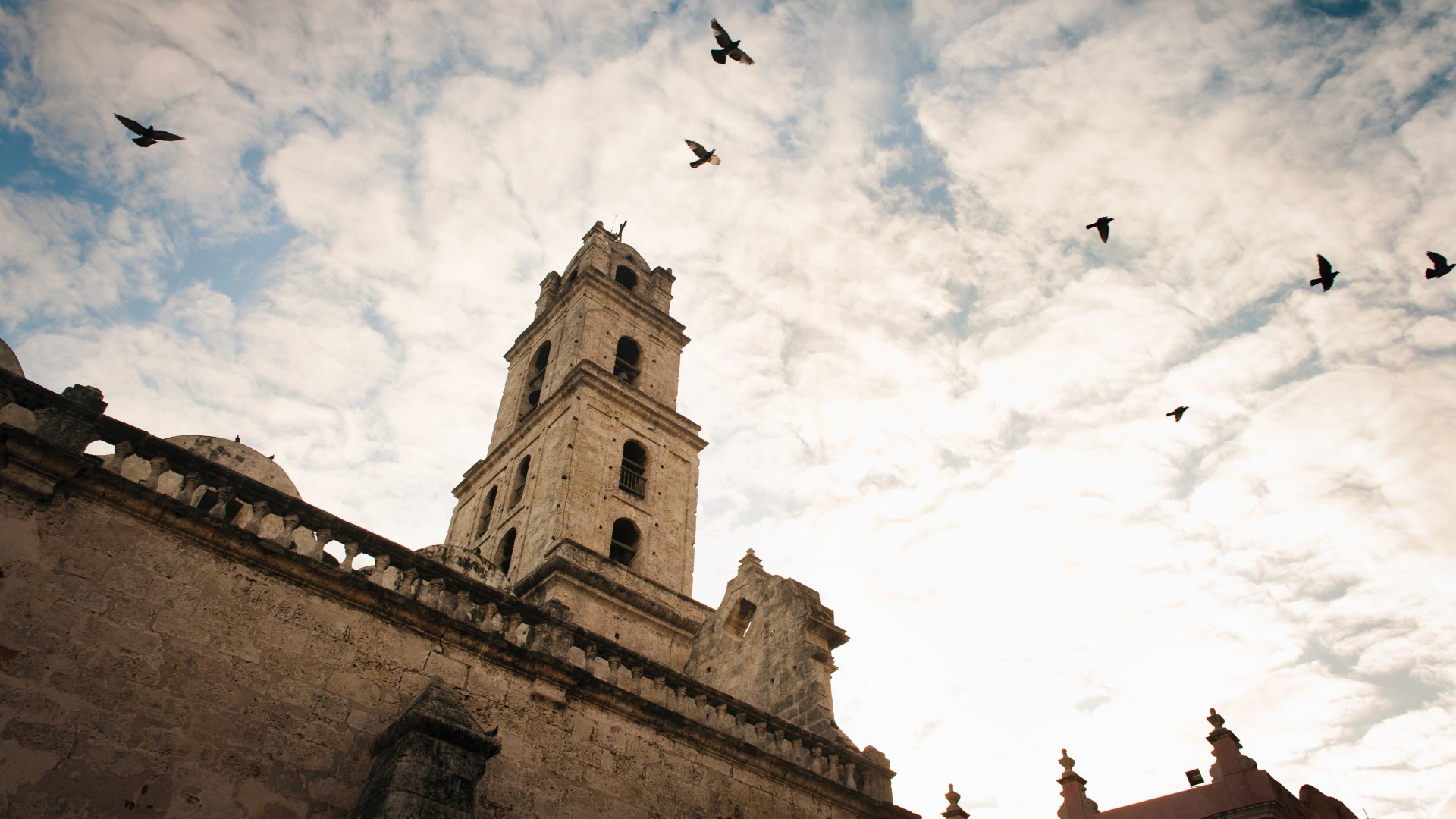The gospel officially arrived in Cuba in 1511, when Spanish conquistador Velázquez established the Catholic Church on the Caribbean island. But since then, the gospel message has been trampled as genocide, plantation slavery, war, and hardship have afflicted Cuba’s people.
Since 1960, dictator Fidel Castro, 88, and now his brother-successor Raul, 83, have held Cuba in their brutal grasp. Under Castro, 99 percent of Cubans read and write by age 15, and starvation is rare. These are great social advances. But freedom to worship God as one wishes has been subject to extreme state control. Cuba is a police state.
In 2012, the United States granted political asylum to Carlos Lamelas, a Pentecostal pastor who ran afoul of the Castro regime. Speaking with CT recently, Lamelas provided a glimpse of what life is like for many pastors: constant surveillance. State-sponsored temptations from black marketeers and offers of illicit sex. Porn slipped inside the pulpit Bible. Control over Bible publication. Severe beatings and assaults. Unable to lure Lamelas, police falsely charged him with human trafficking: “They pulled me out of the house, practically kidnapping me one morning.”
Christian Solidarity Worldwide says violations of religious freedom have risen each year since 2011. But renewed prospects for positive change hang in the balance, even while the US embargo remains in effect. President Obama’s call for normalizing relations, too long frozen in cold war groupthink policies, offers a once-in-a-generation opportunity for Cuban and American churches to strengthen their ties. The gospel, not politics, is our shared Christian agenda. Under the new US policy, “religious activity” is one of the 12 explicitly permitted reasons for which Americans can travel to Cuba under a so-called general license. (This is an improvement from the burdensome specific license, which required case-by-case approval.)
A Cautionary Tale
What does ministry success look like as travel restrictions relax and a repressive regime becomes more open to outside influence? The US church’s response to the fall of the Soviet Union in 1991 is a cautionary story of missed steps, sometimes outright failure, and tentative success. This is not the place to recount the ups and downs of that campaign to spread the gospel throughout Russia in collaboration with the state education system. But why not learn from the mistakes of others?
One key lesson from the post-Soviet era is the necessity of working respectfully alongside the historic Christian community. In Cuba, the Christian population is mostly Catholic. Protestants are largely Pentecostal or charismatic. American evangelicals, new to on-island outreach, would do well to partner with missions already active in Cuba and avoid arriving with a five-year plan printed in English in hand. (See “When the Saints Go Marching In”)
Cuba-bound Christians are better off arriving in Havana seeking to learn as well as help. Look at the numbers. In Cuba, the evangelical movement (including Pentecostals) is growing at 3 percent per year. Methodists are growing at 10 percent yearly. The government attempts to stifle church growth by placing severe limits on building construction. (Last year, the government approved the first new church construction since the revolution.) But savvy pastors have pivoted to a house-church strategy that has worked brilliantly at the grassroots. Aging cathedrals are empty, but new house churches are full.
Cuban Christianity has its problems. Distrust, suspicion, and disagreement afflict local churches and national associations. Informers are everywhere. But Christian leaders also have aspirations. Back in 2009, pastors told CT of their dual dream of Cuba Para Cristo (“Cuba for Christ”) and fulfilling their role in the Great Commission. “The Great Commission is our responsibility as much as the church’s in America,” an evangelical leader in central Cuba told CT.
Cuban Christians hope for an American and global church willing to partner as equals. Visiting Christians can embrace this vision of Cuba as a sending nation. “We can’t look at Cuba as separate from the United States, France, or Russia,” Lamelas said. “We all belong to God. It’s the church of Jesus Christ.”
The Cuban church needs more than fully normalized relations with Uncle Sam. It also needs freedom. “Cuba Libre” is still a valid rallying call, but it must be accomplished por fe—“by faith.” Cuba’s prisons are full of political dissidents. Freedom for each person in Christ as well as freedom from a coercive regime are worthy passions to pursue in Cuba.
Timothy C. Morgan is senior editor of global journalism for Christianity Today. Follow him on Twitter @tmorgan815.










